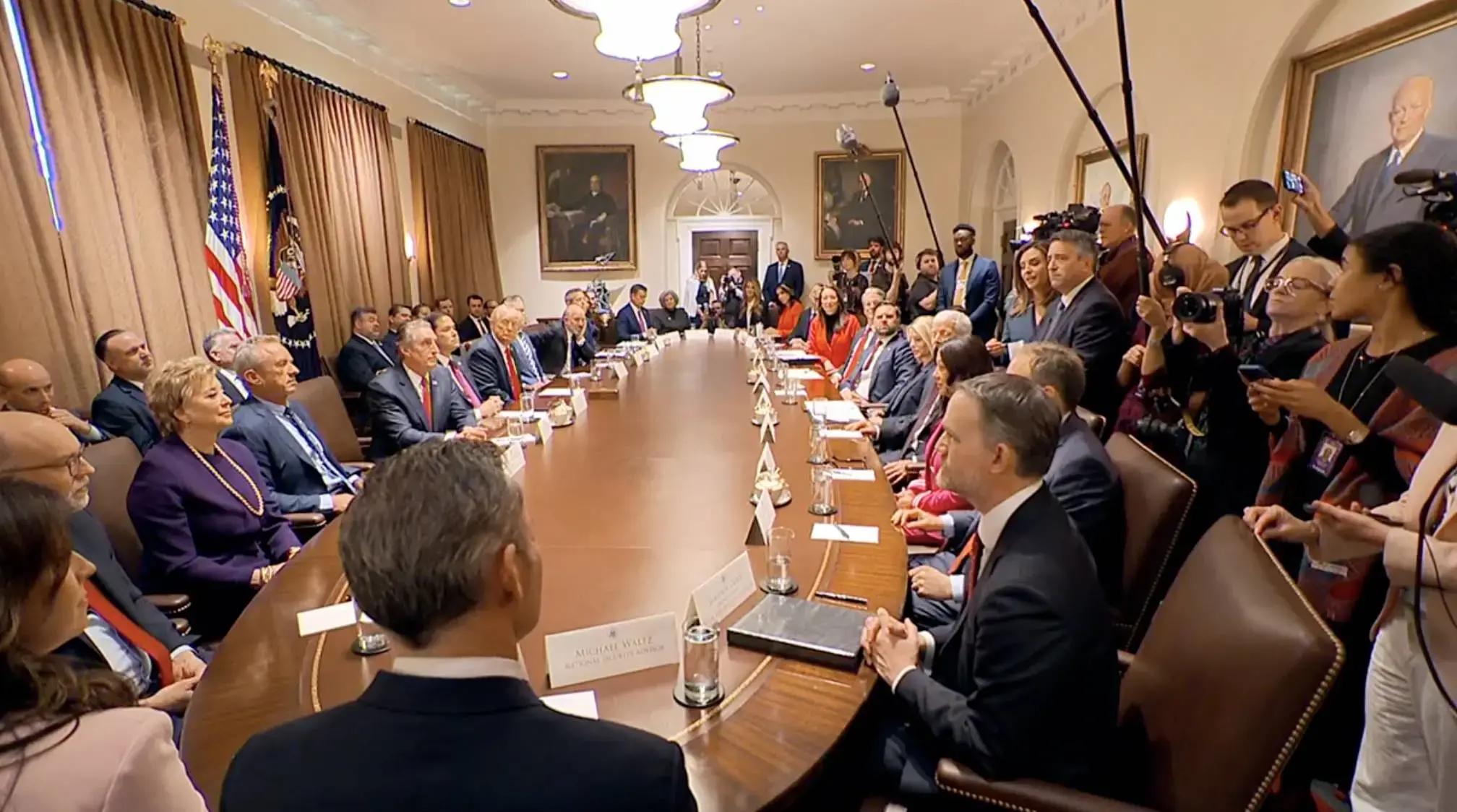After cutting several hundred million dollars in contracts, what strange government departments has Musk's D.O.G.E discovered?
Author: Penny, BlockBeats
On February 17, Musk posted a sarcastic comment: "According to the Social Security database, these are the numbers of people in each age group with a death field set to FALSE! Perhaps 'Twilight' is real, and there are many vampires collecting Social Security." Accompanied by the image below. The image shows that currently, there are over 2,000 individuals over 200 years old in the U.S. collecting Social Security, with the oldest being over 360 years old. Clearly, this is a case of fraud to collect benefits. The government efficiency department is currently investigating this matter.

Since President Trump appointed Elon Musk to lead the "Department of Government Efficiency" (DOGE) in January 2025, this reform initiative aimed at transforming government agencies with corporate thinking has quickly attracted global attention. During the World Government Summit from February 11 to 13, when Musk was asked about the mission of the Department of Government Efficiency (DOGE), he bluntly stated that government efficiency reform is like corporate transformation, only on a much larger scale. He cited Twitter as an example, pointing out that during the reform process, 80% of the workforce was cut, yet through technological improvements, results were achieved in one year that would have taken five years previously. Through the official Twitter account "DOGE," the DOGE team is pushing for radical measures to reduce costs and increase efficiency in government, which has brought significant results but also sparked controversy.
Here are the recent key actions taken by Musk's Department of Government Efficiency:
On February 11, the Department of Agriculture terminated 18 contracts totaling approximately $9 million; the Department of Education canceled 29 DEI training grants totaling $101 million and terminated 89 contracts worth $881 million;
On February 13, verified the cancellation of unnecessary spending contracts by the Department of Education totaling $9 million; the EPA canceled 3 DEI contracts, saving $45 million; additionally, 58 contracts were canceled, saving over $150 million, involving media, DEI, and consulting categories;
On February 14, canceled 167 programs, saving approximately $115 million; the Department of Education terminated funding for four "Equal Assistance Centers" totaling $33 million; canceled a $50 million environmental justice grant provided to the Climate Justice Alliance during the Biden administration, which believes "climate justice is achieved through a free Palestine";
On February 15, terminated 586 contracts from 10 agencies, with a maximum value of $2.1 billion, ensuring savings of $445 million; the Department of Education terminated 70 DEI training grants totaling $373 million; canceled 9 wasteful EPA DEI and environmental justice contracts, saving approximately $60 million; recovered $1.9 billion in funds misappropriated from the Department of Housing and Urban Development (HUD) during Biden's tenure, which can now be used for other purposes by the Treasury;
On February 16, DOGE canceled a series of foreign aid contracts totaling $729 million, including some seemingly outrageous projects:
$10 million for "voluntary male circumcision surgeries in Mozambique";
$9.7 million to the University of California, Berkeley, to train "a group of Cambodian youth with entrepreneurial skills";
$486 million to the "Alliance for Strengthening Elections and Political Processes," with $22 million for "inclusive and participatory political processes" in Moldova and $21 million for voter turnout in India;
$29 million to "strengthen the political landscape in Bangladesh";
…
In addition to the large-scale budget cuts mentioned above, Musk's Department of Government Efficiency has also been streamlining government personnel and auditing government financial systems, which has become two paths for Musk to gradually approach the center of power, causing significant controversy in American society.
Large-scale layoffs extend to key public sectors, raising concerns about social services
According to reports from CCTV News, as of February 16, the plan initiated by Trump and Musk to significantly reduce the number of federal government employees has resulted in the dismissal of over 9,500 people. On February 16 local time, internal emails from the National Institutes of Health (NIH) indicated that the original plan to cut 1,500 employees was adjusted to 1,165, with affected employees being suspended starting on the 17th. This adjustment is believed to be related to the pressure on public health services, but the specific criteria for layoffs have not been disclosed, raising concerns about the continuity of medical research. In addition, several departments of the U.S. President announced the number of layoffs and layoff plans on the same day:
The U.S. Environmental Protection Agency reported that 388 employees have been laid off;
Probationary staff at two research institutions of the U.S. Department of Agriculture have also been laid off, but it is unclear how many staff were affected;
The Centers for Disease Control and Prevention will see nearly 1,300 probationary employees forced to leave, accounting for about one-tenth of the agency's total workforce;
The Internal Revenue Service is preparing to lay off thousands of employees as early as next week;
The U.S. Forest Service will lay off about 3,400 new hires;
The National Park Service will cut about 1,000 positions;
…
Such a large-scale layoff plan has caused a huge uproar in the U.S. The Democrats have sharply criticized it, and the public has taken to the streets to initiate multiple protests. Changes in public sector personnel directly affect the quality of life of the people and the stable development of society.

Image source: YouTube Channel TVBS
Battle for sensitive data: Controversy over taxpayer privacy and national security
The Washington Post reported on February 17 that the DOGE team requested access to IRS taxpayer information, claiming it was for auditing government spending efficiency, but did not specify the scope of data use. This move has sparked strong opposition from privacy advocates and Democratic lawmakers, who argue that it could lead to data misuse or threaten citizens' privacy.
Although the Treasury Department claims that DOGE only has "read-only" access, several government employee unions are not convinced and have directly sued the Treasury, accusing it of illegally granting access to payment systems to Musk's team. Previously, the DOGE team had already analyzed sensitive data from the Department of Education using AI, which undoubtedly exacerbated concerns about the lack of data security protocols. Data security is no small matter, especially when it involves sensitive information from government departments and the public; any breach could lead to a crisis of trust.
In this battle for sensitive data, DOGE's radical experiment has undoubtedly taken a point of no return. If successful, it may provide a new idea and model for global government reform, becoming a reference example. But if it fails, the U.S. will undoubtedly fall into a quagmire of political division and social trust crisis. As Musk stated on Twitter: "Either make the government operate like a tech company, or be eliminated." However, whether the U.S. government can find the right direction to achieve efficient operation in this risky experiment remains uncertain. And how this storm will ultimately conclude is something the whole world is watching.
Recent developments indicate that DOGE's reforms have shifted from the initial "cut contracts, reduce departments" to deeper waters: touching on national security data, core public services, and party competition. Musk's Silicon Valley-style "disruption" has accelerated processes but also intensified constitutional conflicts and social contradictions. If efficiency and credibility cannot be balanced, this experiment may become the most controversial chapter in the history of the U.S. bureaucratic system.










